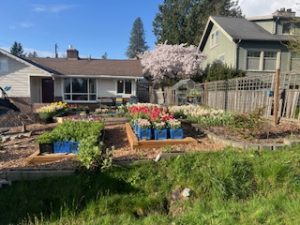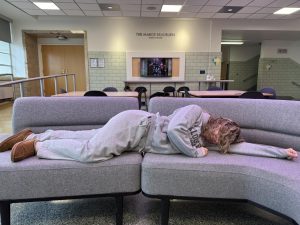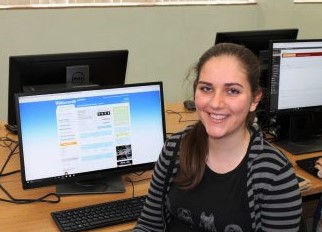Speech and Debate Club: “Small but Mighty”
March 16, 2017
Speech and Debate is a club in which students prepare to compete in speaking tournaments around the state, by writing and rehearsing different types of speeches or preparing for debates.
“I think there’s a misconception that speech and debate is one thing,” said moderator Robert Bergin, “but it’s kind of closer to track and field: there’s 17 or 18 speech events, there’s multiple different kinds of debate. So there’s really something for everyone… for all different interests.”
Events include expository speech, editorial commentary, public forum debates, congressional debate, and humorous interpretation, to name a few. Students can write their own speech, read from published works, and speak or debate extemporaneously. Each type of speech or debate has its own requirements in regards to preparation and skill.
Every year the club goes to about 6 speech tournaments. Highlights this year include Anna Dimak placing first in Editorial Commentary at the University of Washington’s tournament, Kate Silverberg placing second in Open Congress at Gonzaga, and Maliko Madden and Kat Wings qualifying for state at the Redmond Invitational with a Dual Interpretation.
“So far my favorite memory is hearing the news that we made it to state for our duo act,” said freshman Maliko Madden, who participates in the Duo Interpretation and Tall Tales events. “As a freshman this was a big surprise and honor.”
To prepare for these contests, during meetings members go over and rehearse self-written or published speeches, practice impromptu speaking, prepare their case for debate, research topics, and sometimes discuss current events. There is work required outside of meetings, including writing and revising speeches, practicing, and preparing debate cases. Mr. Bergin helps students set deadlines to spread out the work and gives the, feedback during meetings.
From these meetings, members learn public speaking (how to project, speak clearly and enunciate, speak a good pace, and be able to improvise) but also confidence and research skills. Speech and Debate teaches things such as how to effectively appeal to an audience, which words to use and how to say them. They can explore many different interests, from acting to current events.
“I return to SPADE (Speech and Debate) because it’s where I can truly exercise my speaking ability and be around people who are as passionate about certain topics as I am,” said senior Anna Dimak. “Honestly, it’s fun, I’m pretty decent at it, and the skills I’ve developed in SPADE are invaluable.”
Speech and Debate meets on Tuesdays and Thursdays after school.





